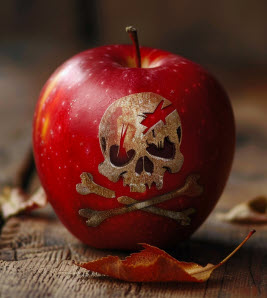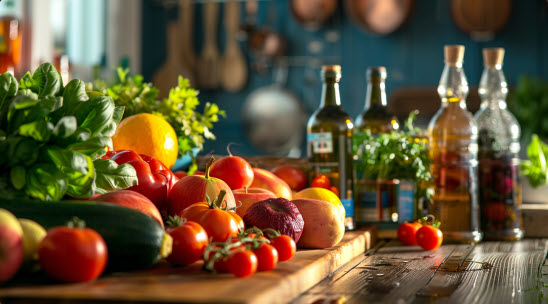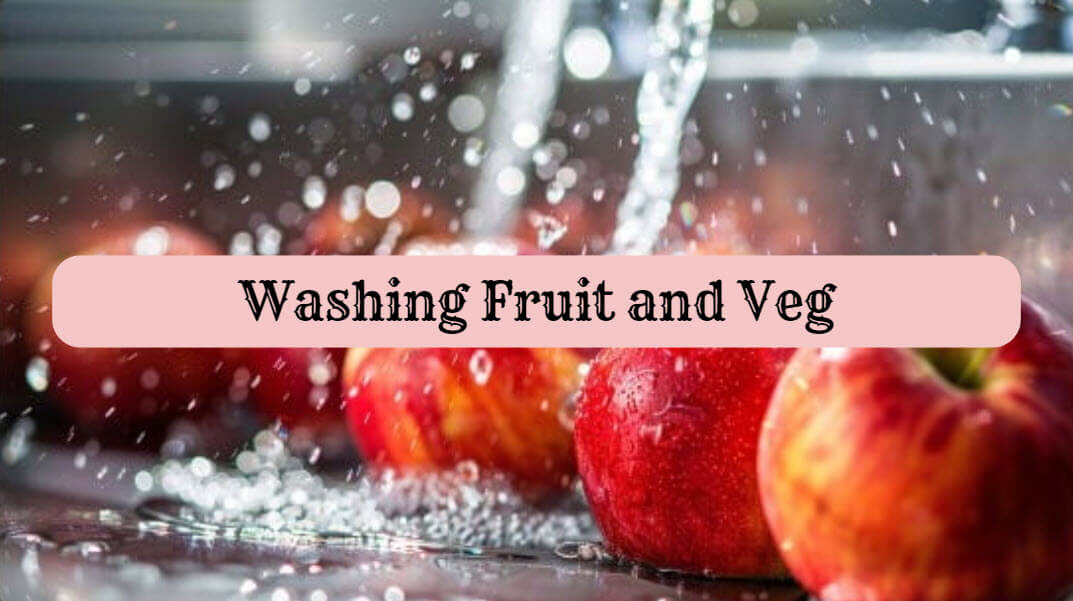Introduction
We all know fruit and veg are good for us, but who wants to eat them if they’re covered in dirt, pesticides, or worse? The stark reality is that if you do not wash produce that you have purchased (from any source) you could end up seriously ill.
Table of Contents
In 2016 there was a serious outbreak of E-Coli in the UK, resulting in 250 people becoming seriously ill. One person died, and others now have lifelong problems as a result. The cause was due to the soil residue on produce that had not been washed off properly.
CLICK HERE to read the article from The Guardian newspaper

Hopefully, you will now understand that washing fruit and veg is essential, but with so many methods out there, it can be confusing. Can a simple vinegar solution be the answer? Let’s dive into the world of produce washing and see if vinegar truly reigns supreme.
The Power of Vinegar Wash as a Natural Antibacterial Agent
White vinegar is a common household staple, and for good reason! Its acidic properties make it a natural disinfectant. Studies have shown that vinegar solutions can effectively reduce bacteria like E. coli and Salmonella on the surface of fruit and veg. This is a big win, especially for those concerned about foodborne illness.
Vinegar Wash: A Simple How-To
Using a vinegar wash is a breeze. Here’s what you’ll need:
- White vinegar: Opt for distilled white vinegar for the best results.
- Water: Cool tap water is perfectly fine.
- A large bowl or clean sink: Fill it with enough water to submerge your fruits and veggies.
The Steps:
- Mix the Solution: Combine 1 part white vinegar with 3 parts water in your bowl or sink.
- Soak it Up: Submerge your fruit and veg in the solution for 2-15 minutes. Soaking time can vary depending on the type of produce and how dirty it appears.
- Rinse Well: This is crucial! Transfer the produce to a colander and rinse thoroughly with clean, cool water to remove any lingering vinegar residue.
- Pat it Dry: Use a clean paper towel or dish towel to gently pat your produce dry. Moisture can encourage bacterial growth, so drying is an important step.

Vinegar’s Limits: Not a One-Stop Solution for Fruit and Veg
While vinegar as a vinegar wash for fruit and veg is a great fighter against bacteria, it has limitations:
- Pesticide Removal and Waxes: Vinegar won’t remove these unwanted hitchhikers. For that, you might want to consider a baking soda soak [2].
- Deeply Embedded Dirt: For very dirty produce, especially root vegetables, a gentle scrub with a vegetable brush under running water might be necessary after the vinegar soak.
The Verdict: Vinegar as Part of Your Produce Washing Arsenal
Vinegar is a safe and effective way to reduce bacteria on your fruit and veg. However, it’s not a silver bullet. Here’s how you can create a well-rounded produce-washing routine:
- Soak in Baking Soda: For fruit and veg with a waxy coating or suspected pesticide residue, try a 15-minute soak in a solution of 1 teaspoon baking soda per gallon of water before the vinegar rinse.
- Scrub When Necessary: For particularly dirty produce, a gentle scrub with a vegetable brush under running water after the vinegar soak can help remove stubborn dirt.
- Always Rinse Well: No matter the washing method, a final rinse with clean water is essential to remove any cleaning solution residue.
By combining these techniques, you can ensure your fruits and vegetables are sparkling clean and safe to enjoy!
“But I buy Organic Fruit and Veg”
Even organic fruits and vegetables should be washed before you eat them. Here’s why:
- Organic doesn’t mean contamination-free: While organic produce avoids synthetic pesticides, it can still have dirt, bacteria, and other contaminants. These can come from natural sources like bird droppings, insects, or dust from the field.
- Washing removes surface impurities: Rinsing with water helps remove these unwanted elements.
- Some organic produce may have wax: Even organic fruits like apples or pears may have a thin layer of wax for preservation. Washing helps remove any waxy residue.
- Organic Crops Can Get Contaminated: We live in a rural area and are friendly with local farmers. I was shocked when they told me that organic produce could get contaminated with pesticides borne on the wind from spraying non-organic crops in the area. So it is important to wash ALL fruit and veg that you buy – and any that you grow yourself too.
CLICK HERE to check out the NHS advice on food safety.

If you need any further information or assistance with this article, don’t hesitate to Contact Us





















